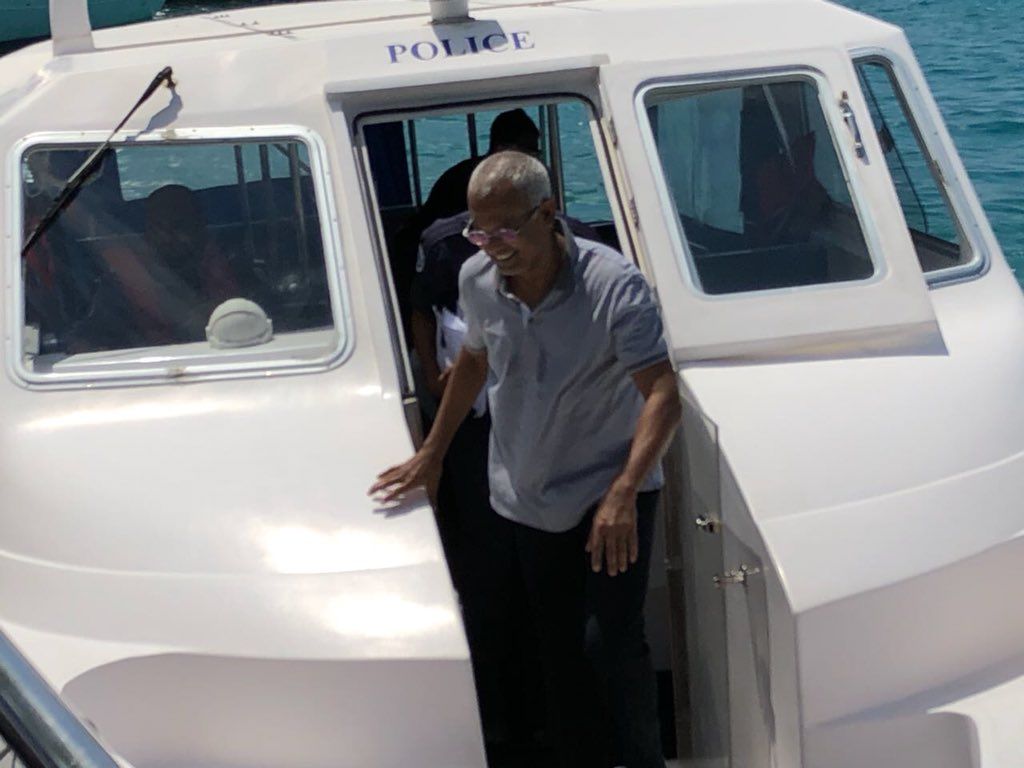Cheers and jeers as lawmaker freed
There are concerns about the drain on police resources since a state of emergency was declared.

28 Mar 2018, 09:00
The lawmaker Ibrahim Mohamed Solih was released on Wednesday after 12 days in custody, as authorities were criticised for draining police resources.
Solih was arrested with scores of others during a protest in the capital on March 16. He was transferred to Malé after his release along with MP Ali Azim, from the Maldivian Democratic Party, and two others.
But there has been confusion about how he was arrested and kept in custody.
Police said he was arrested under emergency powers, which deprived detainees of the right to be taken before a judge within 24 hours.
Become a member
Get full access to our archive and personalise your experience.
Already a member?
Discussion
No comments yet. Be the first to share your thoughts!
No comments yet. Be the first to join the conversation!
Join the Conversation
Sign in to share your thoughts under an alias and take part in the discussion. Independent journalism thrives on open, respectful debate — your voice matters.




